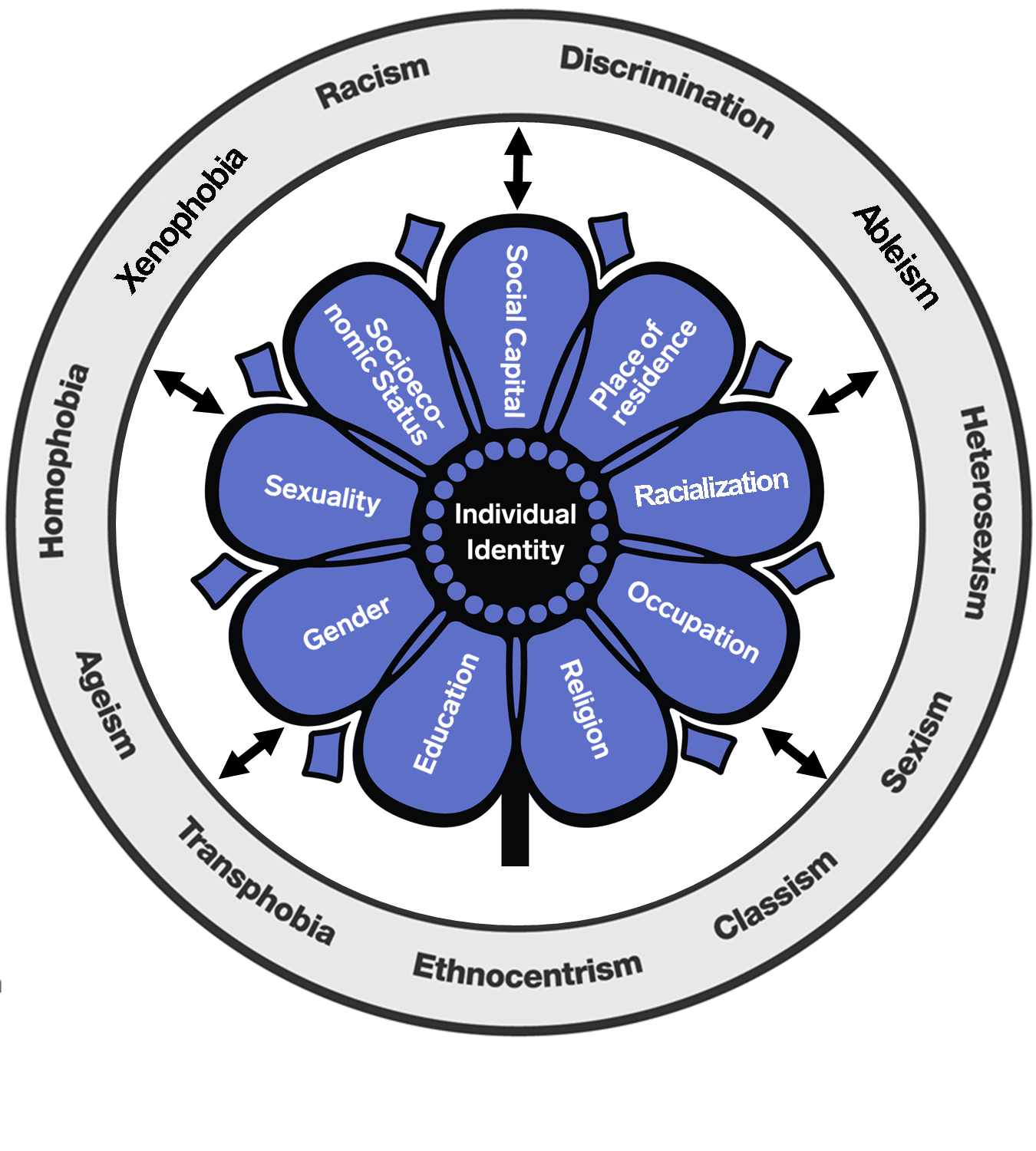Enhancing KT projects with an intersectional lens
- KT practitioners use frameworks to design KT projects.
- Intersecting social factors (e.g., age, education, gender identity) can have significant impacts on KT projects.
- Intersectionality (Figure 1) explores the complex nature of intersecting social factors and their interaction with compounding power structures (e.g., media, education system) and forms of discrimination (e.g., sexism).1-5
- Currently, KT frameworks do not fulsomely explore individual-level social factors and how they interact with wider systems to produce unique human experiences.
- The purpose of this research study is to support KT practitioners to use an intersectional approach in their work. To do this, we are enhancing existing KT frameworks with an intersectional lens and creating tools and training to support taking an intersectional approach in KT. Specifically, we are exploring how to support KT interventions that target older adults.
- In this research study, we work with KT scientists, KT intervention developers, intersectionality experts, and older adults.
- So far, we have:
- Facilitated consultations with stakeholders (e.g., older adults from across Canada) to identify three areas of the KT process to focus on.
- Enabled stakeholder discussions and suggested intersectionality enhancement opportunities for three KT frameworks.
- Facilitated intersectionality enhanced training on KT frameworks and an intersectional approach in KT.
- Created draft tools and incorporated stakeholder feedback on draft tools to support the uptake of an intersectional approach in KT.
- In the future, we will:
- Pilot test and evaluate the intersectionality-enhanced KT frameworks, tools, and training in health care practice.
- Ultimately, we want to support KT intervention developers to self-reflect and design interventions that consider the unique experiences of those doing (e.g., KT practitioners), receiving (e.g., clinicians), and impacted by KT projects (e.g., older adults).
- For more information and project outputs, please visit our project website: https://knowledgetranslation.net/portfolios/intersectionality-and-kt/
Who is this done for? This is a Canadian Institutes of Health Research (CIHR) –funded research project
Share Buttons [span][/span]
[ssba-buttons]
- References
- Collins. Routledge. 1990. https://trove.nla.gov.au/version/21207078.
- Crenshaw, K.U. Chi. Legal F. 1989;139.
- Crenshaw, K. The politics of law: A progressive critique. 1990;195.
- Crenshaw, K. Stanford Law Review. 1991;43(6), 1241-1299.
- Hankivsky O et al. Int J Equity Health. 2014;13:119. doi:10.1186/s12939-014-0119-x.
- Cochrane Equity Methods. PROGRESS-PLUS.
- O’Neill et al. Journal of Clinical Epidemiology. 2014;67, 56-64.
- Simpson, J. Canadian Research Institute for the Advancement of Women (CRIAW). 2009.
Category : TIES Projects
Date : 11 Dec 2019


